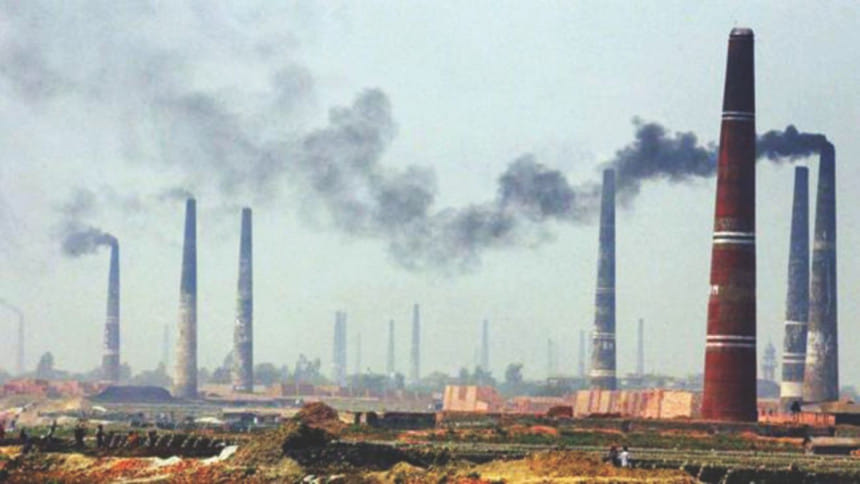Environment and industrialisation

Bangladesh is a densely populated country and generally most of the industries of this country are situated in the midst of residential area of different locality. Almost all of these industries are established without taking environment into consideration. Unplanned industrialisation in Bangladesh over the years has caused severe environmental degradation. At present Bangladesh is in the grip of all types of pollution i.e. water pollution, air pollution, sound pollution, soil pollution, etc. It is thought that massive industrialisation is the key to the development of a country and for the rapid growth of industrialisation, almost every industrial establishment exploits natural resources in many ways. And in that way industrial establishment accelerate environment pollution.
However, we cannot ignore the contribution of industry for the development of Bangladesh. But we should keep in mind that unplanned industrialisation cause great harm for environment and its ultimate result is hindrance of sustainable development.
Bangladesh enacted several environmental laws such as The Bangladesh Environment Conservation Act 1995, The Environment Court Act 2010, The Environment Conservation Rules 1997, etc. The country is also party to different international instruments on environment protection and sustainable development to control indiscriminate industrialisation to maintain sustainable development. However, in Bangladesh, environmental laws apparently seem to be unsuccessful in restricting the establishment of industry in the areas where it should not be. Also environment controlling authority, i.e. Department of Environment under the Ministry of Environment and Forests requires to do much with the issues of surface and ground water management, poisonous and harmful waste management, land management, etc. It is a common problem in our country that we cannot address our problems before they take place. In fact, it is a familiar tendency of our policy makers that they usually get conscious about a matter when it goes bad to worse. For example, it took more than a decade in relocating tannery industry from Hazaribagh to Savar and in the meantime the industry destroyed the aquatic of Buriganga River which is the main source of surface water for Dhaka city.
No good can laws bring unless its executing authorities execute the laws competently. In this respect renowned environmental lawyer Syeda Rizwana Hasan rightly remarks that making new laws and having the old traditional institutions responsible for enforcement, would not bring in the desired change in the environmental order. The failure of the existing law is overwhelmingly attributable to the negligence of the implementing agencies. On the contrary, authorities cannot run their duty smoothly unless they have well defined, balanced and effective laws. Hence, it can be said that to ensure a good result in a particular sector it needs both effective laws and a competent executing authority.
The ultimate goal of the industrialisation is for the development of human civilisation and their standard of living. When reckless industrialisation causes great harm to environment and destroys the balance of ecology in that case industrialisation cannot serve its goal, rather it hampers the interest of the people. Unplanned and reckless industrialisation only creates opportunity for a fraction of the country while it causes harm for the whole country and in extreme cases it becomes a global concern.
Mansura Khanam
Assistant Professor of Law Bangabandhu Sheikh Mujibur Rahman Science & Technology University (BSMRSTU) and
Shahnewaj
Research Officer (Law), Bangladesh Institute of Law and International Affairs (BILIA)

 For all latest news, follow The Daily Star's Google News channel.
For all latest news, follow The Daily Star's Google News channel. 



Comments